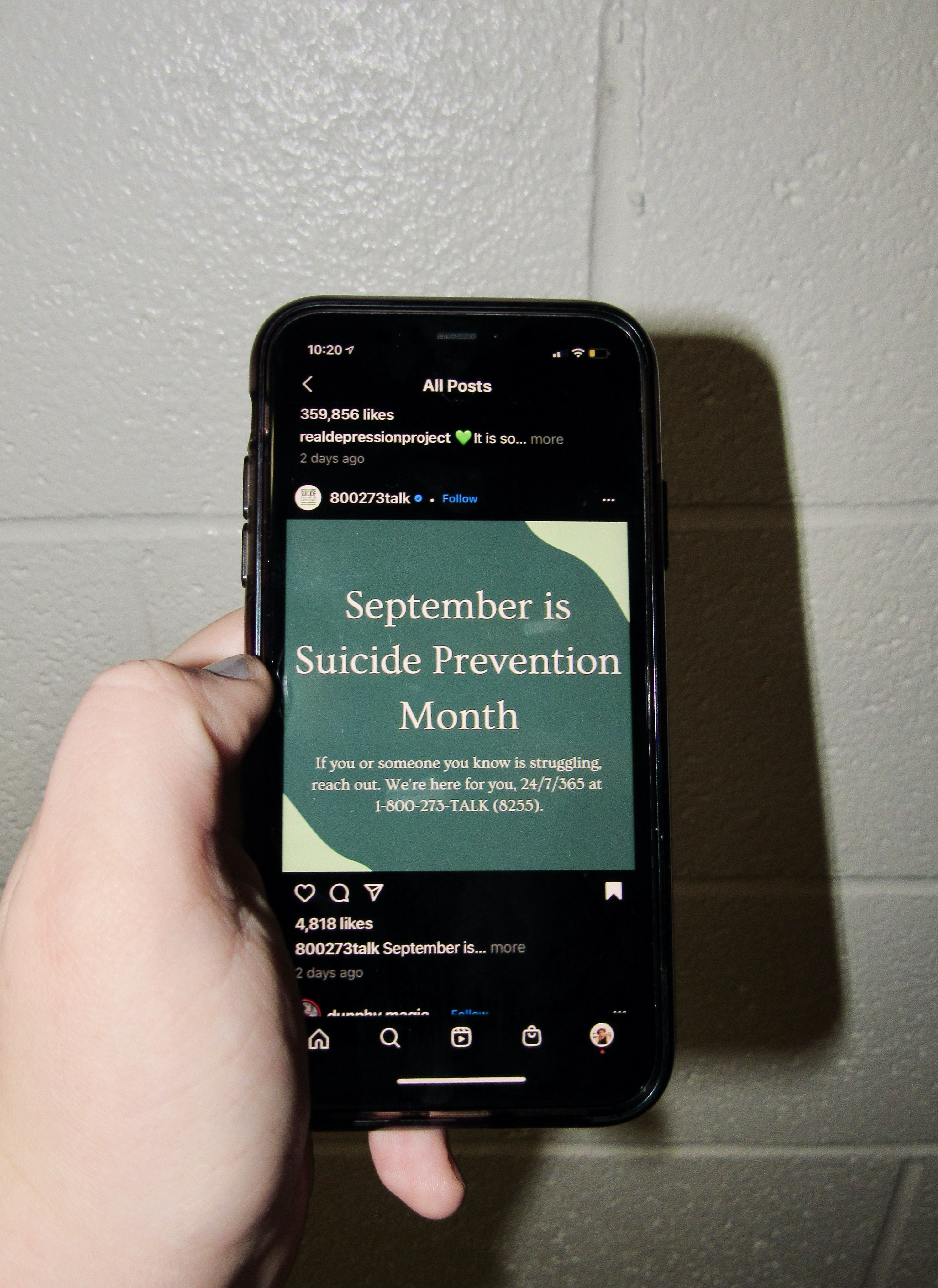The month of September is National Suicide Prevention Month. The month is used as a way to inform others about the potential warning signs of those contemplating suicide while also spreading hope and information on how those affected can seek help.
The National Alliance on Mental Illness, also known as NAMI, provides extensive information on how to seek help and provides updated data on those who are most affected by suicide each year.
According to nami.org, 78% of those who die from suicide are male, and the suicide rate has increased by 35% since 1999. Additionally, suicide is the second leading cause of death of those between ages 10 and 34 and is the 10th leading cause of death in the United States.
“Suicide prevention needs to be a discussion that people should not feel scared to talk about. It’s important because you never know what a person is going through, and simply saying ‘hey, how are you?’ can be impactful for them,” said Logan Szyjkowski, a freshman music education major.
Fortunately, there is a multitude of accessible resources for those who are experiencing depression and outside circumstances causing them to consider suicide. For Winthrop students, Health and Counseling Services is located in the Crawford Building on Scholars Walk and across from the DiGiorgio Campus Center.
Winthrop students are able to meet with a counselor after calling to make an appointment. Appointments can be made through the Medicat Patient Portal and can be made for same-day appointments or for later in the week. These sessions are essentially free as the payments are built into each student’s tuition.
“People should know that at Winthrop, you are not alone, and people are here to help in any way possible,” said Coleman Smith, a freshman sport management major.
Aside from services on campus, there are apps that provide resources for those seeking help. Apps such as Calm and Talkspace are available for both Apple and Android users and allow individuals to speak with a certified therapist for free.
Additionally, there are apps that help individuals keep track of their self-care and send positive affirmations to their phones throughout the day. Examples of these apps are Moodfit and Happify.
“Something individuals can do to improve their mental health is self-care. For example, they could read a book, go to a therapy session, or even get up early to do their hair,” said Kirsten Hunt, a freshman political science major.
Helplines are available for those who are seeking help and do not know where to start. The National Suicide Prevention Lifeline is 1-800-273-TALK (8255). These helplines are available 24 hours and are free and confidential.
According to Suicide Prevention Lifeline, private chatrooms are available as well, along with text messaging for those who are not comfortable speaking on the phone. All conversations remain confidential.
“Mental health is a serious thing and is not something to be ashamed of,” Szyjkowski said. “Supporting each other is the most important and efficient thing to do when it comes to mental health.”![]()




